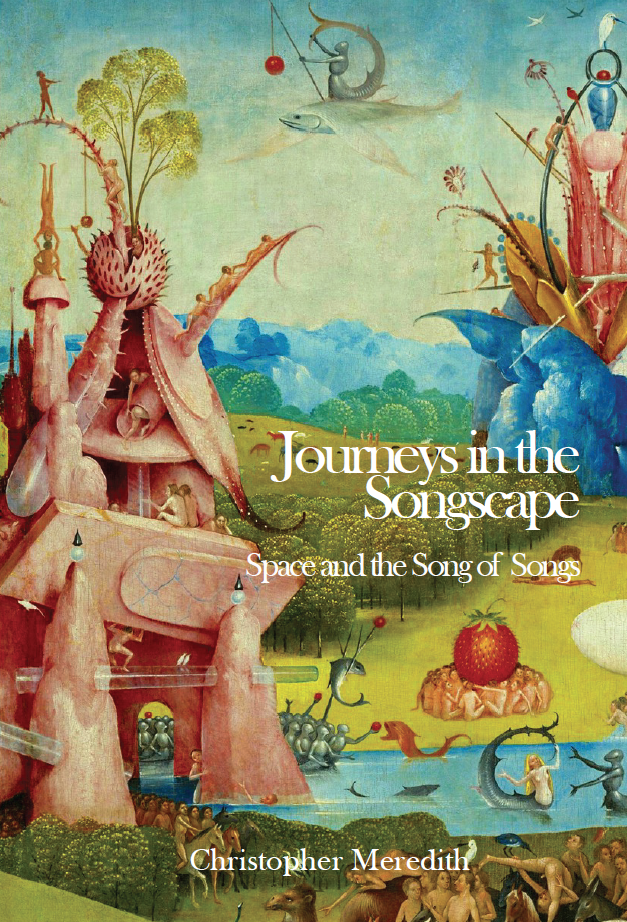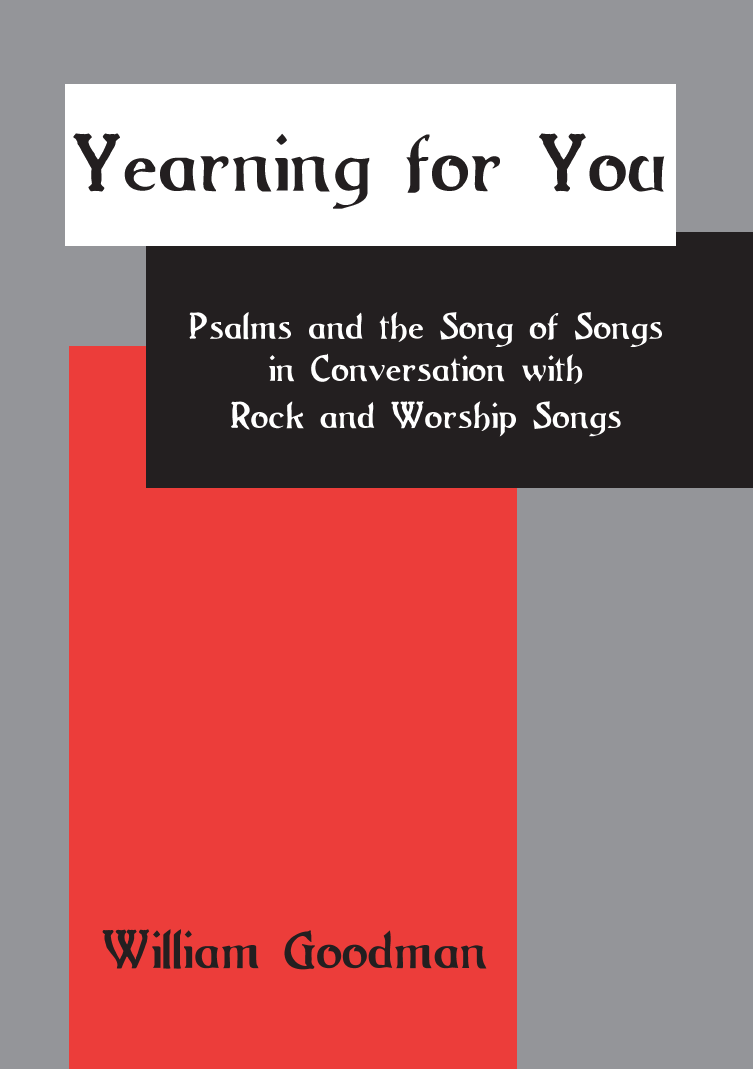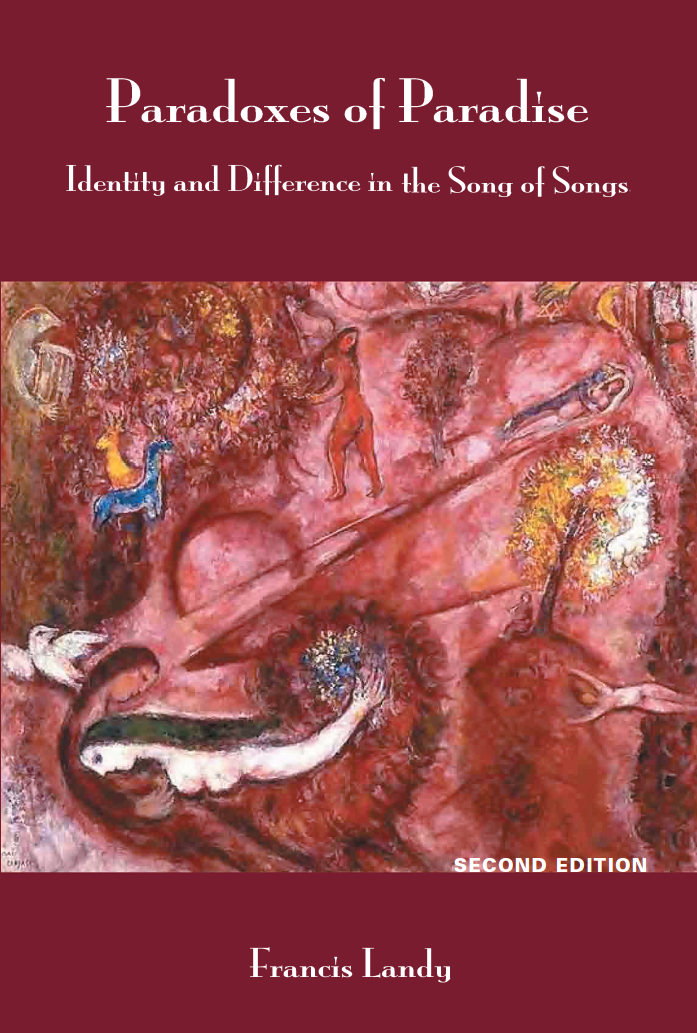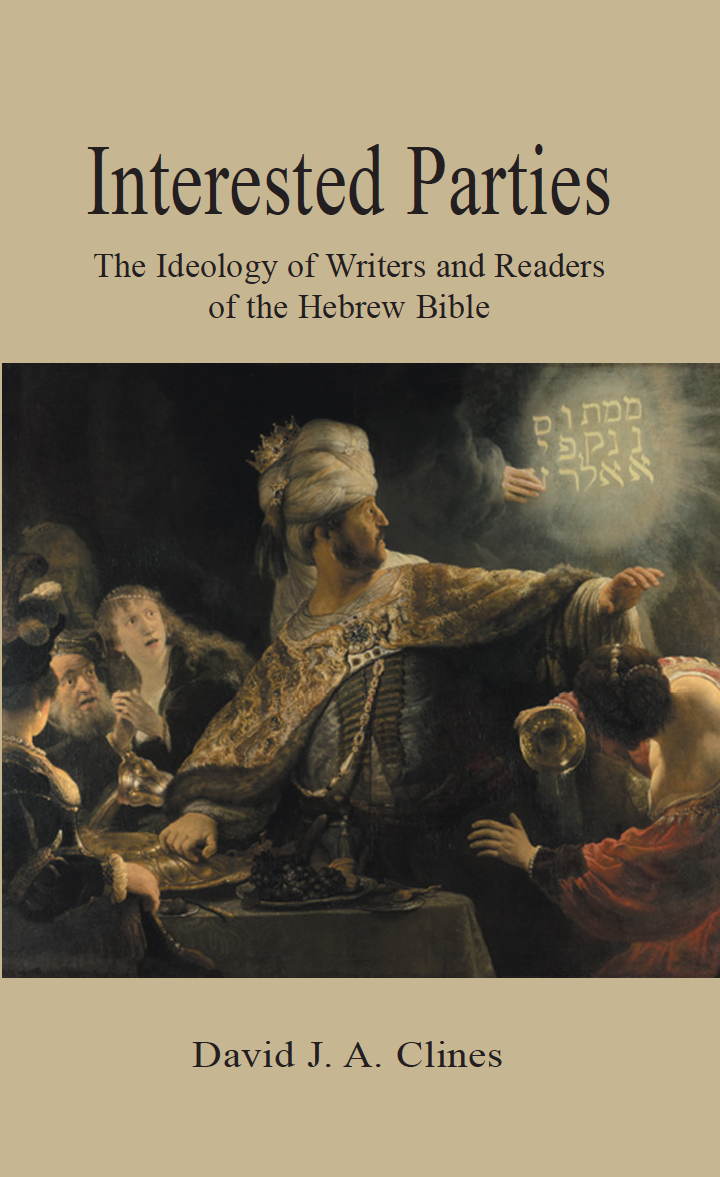Song of Songs in Sense, Sound and Space
Published: Nov 2024
£70.00
This volume offers 13 cutting-edge essays on the Song of Songs presented in four categories.
1. Exegetical and Contextualised Studies. Fernandes argues Solomon’s sidelining in the Song is unjust and uncovers subtle allusions to him. Scheffler examines the contentious place of Song 7.1 and its depiction. Lombaard challenges whether gender equity exists in the Song, arguing that female voices are more prominent than male ones. Landy employs affect theory to the depiction of the woman as a mare (1.9-11) and the invitation for her to return (7.1). Kim highlights the subjectivity of interpretation by comparing readings of Song 7 by Keel, Black and herself through the lens of Umberto Eco’s semiotic model. Potgieter and Lombaard contemporise Paul Decock’s readings of Origen and Bernard on the Song.
2. Spatial Studies. Fischer applies Lefebvre’s spatial theory to the Song, highlighting the protagonists’ physical space; their conceived (cultural) space; and their lived space (their supra-temporal experience). Dantonel analyses several spatial domains in both the Song and Proverbs: spring; well; and vineyard along with three places of enduring love: mother’s house; door; and window.
3. Comparative Studies. Volkonski compares Early Arabic poetic techniques and the Song to show new possibilities for interpreting the latter. Recalcati investigates parallels between the Song and Hellenistic epigrammatic poetry within the Anthologia Palatina. Biermann explores the metaphor(s) ‘set me as a seal upon your heart, as a seal upon your arm’ in 8.6 through cognitive linguistics and sensory archaeology.
4. Studies in Music. Boyce-Tillman integrates her reading of the Song with her musical compositions to contemporise themes including fertility, the body, ecotheology, and apophatic theology. Lamont and Fernandes survey four shared tropes between Arvo Pärt’s The Deer’s Cry, St. Patrick’s Breastplate and the Song: love and war; incantation and magic; connection with nature; and in medias res.
Song of Songs in Sense, Sound and Space
£70.00
This volume offers 13 cutting-edge essays on the Song of Songs presented in four categories.
1. Exegetical and Contextualised Studies. Fernandes argues Solomon’s sidelining in the Song is unjust and uncovers subtle allusions to him. Scheffler examines the contentious place of Song 7.1 and its depiction. Lombaard challenges whether gender equity exists in the Song, arguing that female voices are more prominent than male ones. Landy employs affect theory to the depiction of the woman as a mare (1.9-11) and the invitation for her to return (7.1). Kim highlights the subjectivity of interpretation by comparing readings of Song 7 by Keel, Black and herself through the lens of Umberto Eco’s semiotic model. Potgieter and Lombaard contemporise Paul Decock’s readings of Origen and Bernard on the Song.
2. Spatial Studies. Fischer applies Lefebvre’s spatial theory to the Song, highlighting the protagonists’ physical space; their conceived (cultural) space; and their lived space (their supra-temporal experience). Dantonel analyses several spatial domains in both the Song and Proverbs: spring; well; and vineyard along with three places of enduring love: mother’s house; door; and window.
3. Comparative Studies. Volkonski compares Early Arabic poetic techniques and the Song to show new possibilities for interpreting the latter. Recalcati investigates parallels between the Song and Hellenistic epigrammatic poetry within the Anthologia Palatina. Biermann explores the metaphor(s) ‘set me as a seal upon your heart, as a seal upon your arm’ in 8.6 through cognitive linguistics and sensory archaeology.
4. Studies in Music. Boyce-Tillman integrates her reading of the Song with her musical compositions to contemporise themes including fertility, the body, ecotheology, and apophatic theology. Lamont and Fernandes survey four shared tropes between Arvo Pärt’s The Deer’s Cry, St. Patrick’s Breastplate and the Song: love and war; incantation and magic; connection with nature; and in medias res.
Journeys in the Songscape: Space and the Song of Songs
Published: Sep 2017
Price range: £20.00 through £60.00
The poetic world of the Song of Songs is a famously heady and distortive landscape, filled with bright sunlit rills, nocturnal cityscapes, and fecund bodies laid out like kingdoms. But what does the Song's use and abuse of spatial relationships tell us about its subject matter, and what do its strange panoramas tell us about literary space more broadly? Directly challenging recent methodological trends in biblical spatial studies, Journeys in the Songscape uses a range of innovative critical tools to explore, map and critique poetic space in the Song of Songs.
Taking the reader on a series of journeys across the Song's gendered, rural, urban and bodily spaces, Meredith argues that the worlds that spring up between the Song's lovers are all subtle reimaginings of the space between the biblical page and its own readers, and that at the heart of the Song is a (con)fusion of the dynamics of loving with the experience of reading. Love is at work in the Song, says Meredith, but it is not its subject so much as a sign under which collusions of power, textuality, space and subjectivity labour. The Song's world speaks not only to sexual relationships, then, but to the structure of language itself; textual spaces do not organize textual meaning but rather image its fundamental instability.
Journeys in the Songscape is a bold new literary treatment of the Song of Songs, but it is also a rethinking of what we mean by the term 'literary space', and represents a playful incitement to reconsider how critical tools are put to use in apprehending space as a literary construct.
Journeys in the Songscape: Space and the Song of Songs
Price range: £20.00 through £60.00
The poetic world of the Song of Songs is a famously heady and distortive landscape, filled with bright sunlit rills, nocturnal cityscapes, and fecund bodies laid out like kingdoms. But what does the Song's use and abuse of spatial relationships tell us about its subject matter, and what do its strange panoramas tell us about literary space more broadly? Directly challenging recent methodological trends in biblical spatial studies, Journeys in the Songscape uses a range of innovative critical tools to explore, map and critique poetic space in the Song of Songs.
Taking the reader on a series of journeys across the Song's gendered, rural, urban and bodily spaces, Meredith argues that the worlds that spring up between the Song's lovers are all subtle reimaginings of the space between the biblical page and its own readers, and that at the heart of the Song is a (con)fusion of the dynamics of loving with the experience of reading. Love is at work in the Song, says Meredith, but it is not its subject so much as a sign under which collusions of power, textuality, space and subjectivity labour. The Song's world speaks not only to sexual relationships, then, but to the structure of language itself; textual spaces do not organize textual meaning but rather image its fundamental instability.
Journeys in the Songscape is a bold new literary treatment of the Song of Songs, but it is also a rethinking of what we mean by the term 'literary space', and represents a playful incitement to reconsider how critical tools are put to use in apprehending space as a literary construct.
Solomon the Lover and the Shape of the Song of Songs
Published: Sep 2015
£50.00
Reading the Song of Songs perpetually raises the question, What is this love that has been sung about so evocatively to ever new generations? The exuberance of the poetry and the remarkable history of its reception make the understanding of what the poetry is all about the more urgent for the conscientious reader.
The shape of the Song and what this shape reveals of the poet's concerns are central for this study. Hauge's analysis discloses that a special arrangement of formally independent units, signalled by effects of repetition, is typical of its composition. The strophes are set out in a fivefold pattern containing three types of passage: narrative elements, addresses to the daughters of Jerusalem, and dialogues between the lovers.
The tension of the opening scenes dedicated to Solomon and his women, contrasted with a final scene where the king is the humble supplicant, reflects an underlying story of how Solomon the lover of many women was transformed into a lover of the One. The story is dedicated to the power of love, its character as an overwhelming force being even accented by implications of shame. Motifs of absence and separation suggest longing as the essence of love, the final image of the lover as the hart upon the fragrant mountains adding a tinge of sadness to the impression.
Themes from the Solomon tradition are important for the narrative strand. The formal shape and the cast of actors are deeply influenced by Proverbs 1 —7, not least when the poet plays havoc with venerable aspects of the wisdom tradition.
Solomon the Lover and the Shape of the Song of Songs
£50.00
Reading the Song of Songs perpetually raises the question, What is this love that has been sung about so evocatively to ever new generations? The exuberance of the poetry and the remarkable history of its reception make the understanding of what the poetry is all about the more urgent for the conscientious reader.
The shape of the Song and what this shape reveals of the poet's concerns are central for this study. Hauge's analysis discloses that a special arrangement of formally independent units, signalled by effects of repetition, is typical of its composition. The strophes are set out in a fivefold pattern containing three types of passage: narrative elements, addresses to the daughters of Jerusalem, and dialogues between the lovers.
The tension of the opening scenes dedicated to Solomon and his women, contrasted with a final scene where the king is the humble supplicant, reflects an underlying story of how Solomon the lover of many women was transformed into a lover of the One. The story is dedicated to the power of love, its character as an overwhelming force being even accented by implications of shame. Motifs of absence and separation suggest longing as the essence of love, the final image of the lover as the hart upon the fragrant mountains adding a tinge of sadness to the impression.
Themes from the Solomon tradition are important for the narrative strand. The formal shape and the cast of actors are deeply influenced by Proverbs 1 —7, not least when the poet plays havoc with venerable aspects of the wisdom tradition.
Yearning for You: Psalms and the Song of Songs in Conversation with Rock and Worship Songs
Published: Sep 2012
£60.00
From your lips she drew the Hallelujah' (Leonard Cohen). Romance and sexual desire are expressed in some of today's most popular songs using religious language. Conversely, the latest Christian worship songs sometimes invite worshippers to speak to God in the language of desire and romance. Contemporary western culture and spirituality blur the boundaries between desire for God and sexual desire. This innovative book stages a conversation first between biblical songs and then between biblical and contemporary songs. Desire for intimacy is the topic of conversation. Texts from the Song of Songs are first in dialogue with some of the Psalms, exploring their themes of desire, absence, longing, hearing, delight, feasting, physicality, mutuality and security. The circle of conversation is then widened, to consider the voices of contemporary rock and worship songs in the light of what has been uncovered in the biblical songs, and to hear what questions today's songs may ask of the ancient texts. The biblical voices resist any suggestion, Goodman argues, that human sexual experience may be a means of encounter with God, or a sacrament of such an encounter. They also highlight the disparity in power between God and human beings which weighs against any sense of a balanced mutuality in yearning. Yet eros or romance may serve as a metaphor for a divine —human relationship, if used alongside a variety of other metaphors. At points of intersection, where they converge and conflict, these different metaphors can create a deeper understanding of the yearning for intimacy, both human and divine.
Yearning for You: Psalms and the Song of Songs in Conversation with Rock and Worship Songs
£60.00
From your lips she drew the Hallelujah' (Leonard Cohen). Romance and sexual desire are expressed in some of today's most popular songs using religious language. Conversely, the latest Christian worship songs sometimes invite worshippers to speak to God in the language of desire and romance. Contemporary western culture and spirituality blur the boundaries between desire for God and sexual desire. This innovative book stages a conversation first between biblical songs and then between biblical and contemporary songs. Desire for intimacy is the topic of conversation. Texts from the Song of Songs are first in dialogue with some of the Psalms, exploring their themes of desire, absence, longing, hearing, delight, feasting, physicality, mutuality and security. The circle of conversation is then widened, to consider the voices of contemporary rock and worship songs in the light of what has been uncovered in the biblical songs, and to hear what questions today's songs may ask of the ancient texts. The biblical voices resist any suggestion, Goodman argues, that human sexual experience may be a means of encounter with God, or a sacrament of such an encounter. They also highlight the disparity in power between God and human beings which weighs against any sense of a balanced mutuality in yearning. Yet eros or romance may serve as a metaphor for a divine —human relationship, if used alongside a variety of other metaphors. At points of intersection, where they converge and conflict, these different metaphors can create a deeper understanding of the yearning for intimacy, both human and divine.
Paradoxes of Paradise: Identity and Difference in the Song of Songs, Second Edition
Published: May 2011
£22.50
Rabbi Akiba is famously reported to have said, 'Heaven forbid that any one in Israel ever disputed that the Song of Songs is holy, for the whole world is not worth the day on which the Song of Songs was given to Israel, for all the writings are holy, but the Song of Songs is the Holy of Holies'. This book is an extended elaboration of Rabbi Akiba's statement. It argues that the Song is a Hellenistic composition, drawing on the resources of ancient Near Eastern erotic poetry and characterized by a complex though fragile unity.
Through the metaphors, the lovers progressively see themselves reflected in each other, as well as in the world about them and the poetry of love. The poem celebrates the land of Israel in spring, an ideal humanity, and a perfected language. It culminates in the contestation of love and death, and the assertion that only love survives the exigencies of time.
The pervasive ambiguity of the Song, in which one never quite knows what happens, is related to the ambivalence of beauty, which is closely related to ugliness. Hence the surrealist imagery of the Song verges upon the grotesque and stretches the resources of our imagination. Through a detailed comparison with the Garden of Eden story, Landy argues that the Song is a vision of paradise seen from the outside, through the ironic poetic gaze, in a world potentially hostile or indifferent.
Paradoxes of Paradise: Identity and Difference in the Song of Songs, Second Edition
£22.50
Rabbi Akiba is famously reported to have said, 'Heaven forbid that any one in Israel ever disputed that the Song of Songs is holy, for the whole world is not worth the day on which the Song of Songs was given to Israel, for all the writings are holy, but the Song of Songs is the Holy of Holies'. This book is an extended elaboration of Rabbi Akiba's statement. It argues that the Song is a Hellenistic composition, drawing on the resources of ancient Near Eastern erotic poetry and characterized by a complex though fragile unity.
Through the metaphors, the lovers progressively see themselves reflected in each other, as well as in the world about them and the poetry of love. The poem celebrates the land of Israel in spring, an ideal humanity, and a perfected language. It culminates in the contestation of love and death, and the assertion that only love survives the exigencies of time.
The pervasive ambiguity of the Song, in which one never quite knows what happens, is related to the ambivalence of beauty, which is closely related to ugliness. Hence the surrealist imagery of the Song verges upon the grotesque and stretches the resources of our imagination. Through a detailed comparison with the Garden of Eden story, Landy argues that the Song is a vision of paradise seen from the outside, through the ironic poetic gaze, in a world potentially hostile or indifferent.
Interested Parties: The Ideology of Writers and Readers of the Hebrew Bible
Published: Oct 2009
£17.50
There is a twin focus in this volume. The title of a keynote essay —'Why Is There a Song of Songs, and What Does It Do to You If You Read It?' —hints at it. The focus is equally on the ideologies of the writers of the Hebrew Bible, who brought the text into being, and on the ideologies of its readers, who are being shaped by the text at the same moment that they are shaping it in their own image. Uncovering the ideologies of writers are readers is the project of this book, calling for a step beyond the usual scholarly goal of understanding —to a practice of the art of critique.
Among the other chapters in this challenging book are: The Ten Commandments: Reading from Left to Right, Metacommentating Amos, Haggai's Temple, Constructed, Deconstructed and Reconstructed, David the Man: The Construction of Masculinity in the Hebrew Bible, Psalm 2 and the MLF (Moabite Liberation Front), God in the Pentateuch: Reading against the Grain. This is a reprint of the original 1995 edition.
Interested Parties: The Ideology of Writers and Readers of the Hebrew Bible
£17.50
There is a twin focus in this volume. The title of a keynote essay —'Why Is There a Song of Songs, and What Does It Do to You If You Read It?' —hints at it. The focus is equally on the ideologies of the writers of the Hebrew Bible, who brought the text into being, and on the ideologies of its readers, who are being shaped by the text at the same moment that they are shaping it in their own image. Uncovering the ideologies of writers are readers is the project of this book, calling for a step beyond the usual scholarly goal of understanding —to a practice of the art of critique.
Among the other chapters in this challenging book are: The Ten Commandments: Reading from Left to Right, Metacommentating Amos, Haggai's Temple, Constructed, Deconstructed and Reconstructed, David the Man: The Construction of Masculinity in the Hebrew Bible, Psalm 2 and the MLF (Moabite Liberation Front), God in the Pentateuch: Reading against the Grain. This is a reprint of the original 1995 edition.







